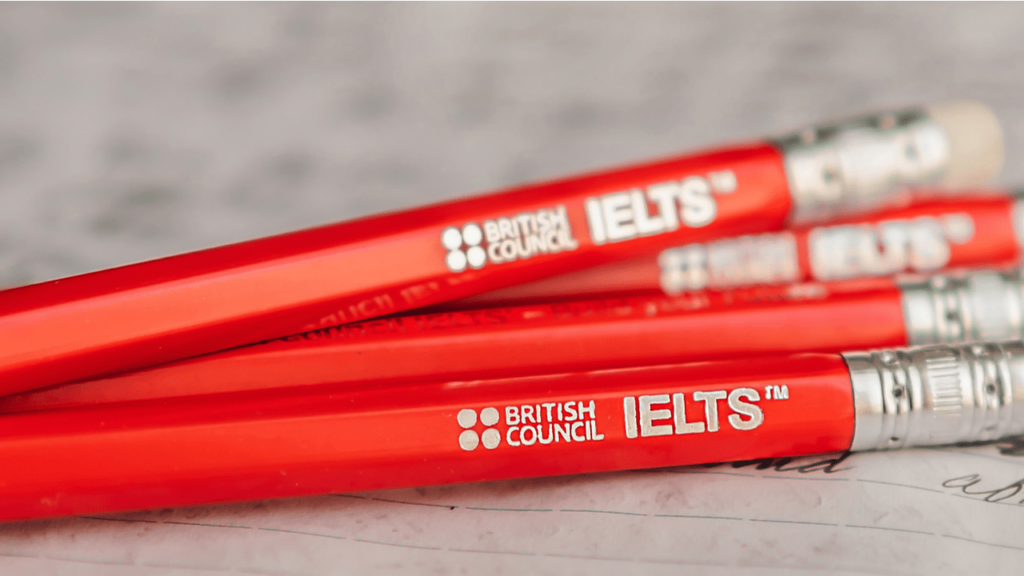IELTS conductors like IDP and British Council haven’t set any minimum score for the exam. However, universities of different countries ask for IELTS scores to check if the candidate would be able to understand the classes which are conducted in English. The IELTS exam checks your proficiency in English in 4 sections- reading, writing, speaking and listening. Therefore, you should at least have a basic understanding of the language to comprehend your studies abroad. Now, let us find out everything about IELTS eligibility in detail.


Consult IELTS Expert for a Free Personalised Learning Plan
Improve your IELTS speaking score with a 1:1 consultation.
IELTS Eligibility for Indian Students
The exam council recommends this test for anyone above the age of 16. There is no upper age limit for the examination. The IELTS examination is open to all with no discrimination for age groups, gender, race, or nationality. There are no restrictions regarding the number of times you can apply for the IELTS examination. You are eligible to take the exam as many times as you want. So if you want to score better than you did, or if you missed your examination, you are eligible to register again.
The IELTS examination is open to all with no discrimination for age groups, gender, race, or nationality. Most colleges and universities require a score of 7 or higher for admission to their college. Some universities also accept a score of 6.5, but it is preferred to have a score of 7 for a wide range of options.
Minimum IELTS Score Requirement
There is no such thing as a minimum score for IELTS. Each university has its own selection criteria. Every university and country has their own requirements for the IELTS score to be eligible for admission. Therefore, it is advised to target the highest band scores to get admission to your desired university. Although, if you have already decided to which university you want to take admission, then you should ask your study abroad advisor for their IELTS score requirements.

Want to Score 7+ IELTS Band in 4 Weeks?
5L+ students across India have signed up for Leap’s Masterclass to date.

Want to Score 7+ IELTS Band in 4 Weeks?
5L+ students across India have signed up for Leap’s Masterclass to date.
Percentage Required in 12th & Graduation for IELTS
IELTS does not assess candidates based on how they performed in their 12th or graduation. Nevertheless, many universities also allow candidates to apply for their courses purely based on their performances in the 10th and 12th in English.
However, universities may ask at least 55-65% in the 12ths in English. Candidates must secure the score outlined if they are not opting for IELTS. On the other hand, IELTS purely assesses speaking, listening, reading and writing.
Minimum IELTS Score Required for the Top Universities
Most colleges and universities require a score of 7 or higher for admission to their college. Some universities also accept a score of 6.5. However, it is preferable to score 7 or above for a wide range of options among the top colleges.
Countries that Accept IELTS Scores
140 countries across the world accept the IELTS score. The top countries that require an IELTS score are:
- The USA
- UK
- Australia
- Canada
- New Zealand
- Ireland
IELTS Examinations Conducted
The governing councils that conduct the IELTS examinations are:
- International Development Program (IDP)
- British Council
- Cambridge English for Speakers of Other languages (ESOL)
The IDP and the British council are widely used by Indians for IELTS exam registrations. There is some debate as to the validity of the results from each council. However, there is no actual difference between the two. You can choose either of the two councils for your IELTS registration. The procedure for the test is the same and the results also hold the same credentials. After you crack your IELTS exam you get eligible to study, work, or migrate to an English-speaking country.
IELTS Exam Pattern
The IELTS exam is conducted in two different formats- the IELTS General Training Test and IELTS Academic. Both of them serve different purposes.
IELTS Academic examination is mostly chosen by the students applying for higher education. If you want to study abroad, then you must opt for the Academic examination. The reading and writing sections of the test will focus on your academic needs. This examination is also sometimes opted for by professionals.
IELTS General training program is mostly opted by the professionals, immigrants, students of general courses, etc. General Training focuses more on the fundamental understanding of the English language.
The reading and writing sections for these two types of examinations differ. However, the listening and speaking portions are pretty much the same for both. There would be a reading test followed by a writing test and finally a listening test. All three tests would be conducted one after another, on the same day. However, you can opt to appear for the speaking test at an interval of a week before or after the other sections.
If you are looking for the best IELTS online coaching, I would recommend you Leap Scholar IELTS Plus Programme. The mentors of Leap Scholar’s IELTS Plus Programme have experience of 20+ years and have mentored more than 1000+ students. The students under this Programme have shown excellent results with 7+ band scores and some students got 8 and 9 band scores.
You can visit their website to enrol for this at just Rs. 499/- and get all the secret tips and tricks, live sessions, mock tests and a lot more to target a 7+ band score in IELTS.
Registration Process for IELTS
Whenever they plan to appear for IELTS, Candidates must first register for it. It can be either online or offline. It is available up to four times a month, and candidates can appear for it on any of the 48 days the test is conducted. Besides, if they are not satisfied with the score, they can reattempt it. However, it is only valid for two years only. Below are the steps to register online for IELTS.
Step 1: Candidates must visit the official website of IELTS.
Step 2: Click the ‘Register for Test’ Option.
Step 3: Select your preferred time, date and location.
Step 4: Submit your personal details such as name, email, mobile number and date of birth.
Step 5: Provide your registration details such as the location of the test, the country one intends to migrate to, and the number of years one is studying English.
Step 6: You must select the name of colleges where the Test Report Form will be sent.
Step 7: Check the information you have put.
Step 8: Make your payment via credit or debit card.
Step 9: Once done, candidates can print out the acknowledgement receipt.
On the other hand, test-takers must download and print the application form for registering offline. It must be submitted to the nearest test centre. One must also provide a copy of their passport which they must bring on the test day.
Examination Dates Set by IDP for 2023
Candidates who wish to appear for IELTS must know of the examination dates for 2022. It will help them prepare accordingly. The dates are outlined below in the following tables:
| Type of Exam | Exam Dates For 2022 |
|---|---|
| Academic & General Training | 08 January |
| Academic | 15 January |
| Academic | 20 January |
| Academic & General Training | 29 January |
| Academic & General Training | 05 February |
| General Training & Academic | 12 February |
| General Training & Academic | 17 February |
| Academic | 26 February |
| Academic | 03 March |
| General Training & Academic | 12 March |
| Academic | 19 March |
| Academic & General | 26 March |
| Academic & General | 09 April |
| Academic | 21 April |
| Academic & General | 23 April |
| Academic | 30 April |
| General & Academic | 07 May |
| General & Academic | 12 May |
| General & Academic | 21 May |
| Academic | 28 May |
| Academic | 04 June |
| General & Academic | 11 June |
| Academic | 16 June |
| Academic & General | 25 June |
| Academic | 07 July |
| Academic & General | 09 July |
| Academic | 16 July |
| Academic & General | 23 July |
Tips To Get an IELTS Band Score Above 7
- Know the structure and format of the test.
- Form a strategy to answer questions.
- Set realistic goals.
- Read English daily.
- Practice every day.
- Polish vocabulary.
- Speak English loudly to practice.
- Be attentive during the examination.
- Recheck answers, if required.
- Try to learn the exam approach in-depth.

Leap Scholar assists students in the preparation of IELTS to reach their desired university. They can opt for a crash course to achieve a band of 7 within 4 weeks. Apart from this, Leap Finance provides hassle-free, zero collaterals education loans for study abroad students.
Frequently Asked Questions
1. What is the fee for the IELTS Academic examination?
Ans: The fee for IELTS Academic examination is Rs.16,250. This fee is the same for both the pen and paper-based exam and computer-based exam.
2. What is the validity of the IELTS test score?
Ans: IELTS test scores are valid for 2 years from the date of the result publication.
3. What is the minimum age of the IELTS exam?
Ans: To give an IELTS examination, students have to be a minimum of 16 years of age.
















Have Questions? Get Guidance to reach your Dream University
Connect with India's finest counsellors and biggest study abroad community.